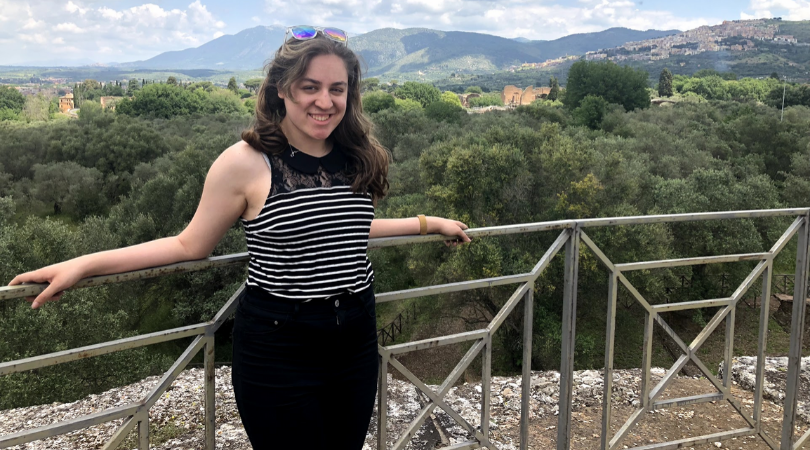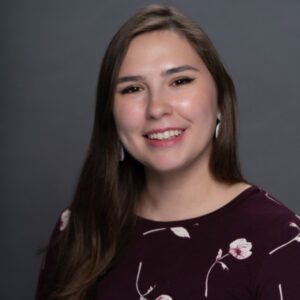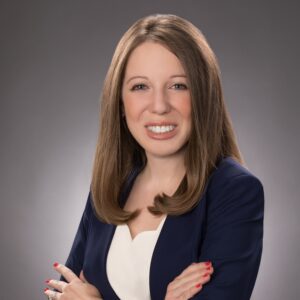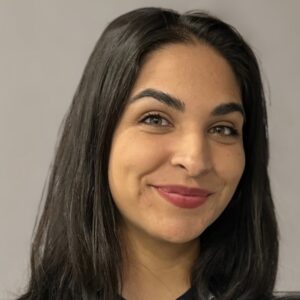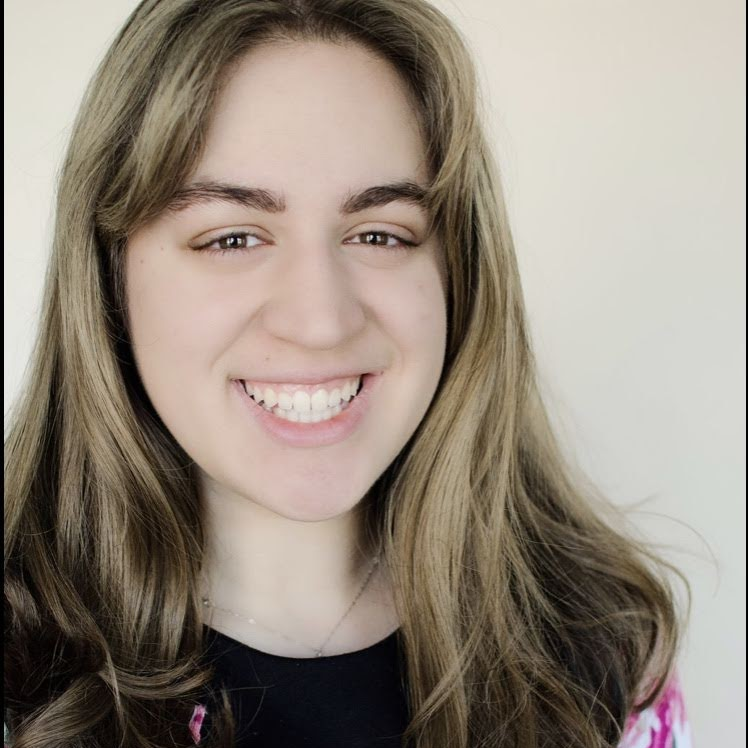
Maria was born and raised in Plano, Texas. She attended The Hockaday School, an all-girls school, and is currently a Junior at Southern Methodist University. Maria is a Presidential Scholar at SMU, double-majoring in history and English, and plans to attend graduate school in the hopes of becoming a professor and advisor. Maria wants to not only be a history professor, but someone students can go to for advice, whether they are facing traditional or nontraditional issues. Maria’s upbringing largely influenced her political perspective and is highlighted by what she advocates for – human rights, free education, menstrual equity, and inclusivity.
Maria’s Colombian roots and educational background have largely influenced her political perspective. Her mother’s side of the family is Colombian, many of which have immigrated to Florida. Maria was able to witness the difficulties they faced to legally immigrate to the United States. Because of her family’s experience, Maria understands how strenuous the immigration process is. Consequently, Maria is extremely compassionate for those who are forced to immigrate to the United States without the ‘legal’ paperwork, because of the extensive processes and endless hoops applicants must jump through. Maria also believes The Hockaday School taught her the basics of feminism without explicitly doing so. The institution had students read books written by women authors, which showed the girls what women are capable of. The Hockaday School also placed a paramount emphasis on community service involvement, which introduced Maria to teaching opportunities, and organizations such as the Texas Women’s Foundation and Planned Parenthood. Attending a school where many of the young women were engaged in the community, sparked Maria’s interest in advocating for women’s rights and menstrual equity.
Maria believes that the cost of higher education and inclusivity in reproductive health care are the two greatest issues of today. She considers herself lucky to be able to attend SMU on a scholarship, which without it, might have been impossible. Maria believes that students should be able to attend college without going into debt. On the health care side, she advocates for menstrual equity, which refers to the affordability, and accessibility of menstrual products. In addition, Maria believes education materials for menstrual products are catered towards women and should be more gender neutral. She also endorses making menstrual products free and available to all.
In 2019, Maria was a fellow on the Young Women’s Advisory Council, part of the Texas Women’s Foundation. Her subgroup focused on women’s identity, and how certain policies would affect various groups of women, including trans women or gay women. Maria was able to give feedback on certain policies and aided in distributing census forms. Growing up in a predominately white environment, she sometimes felt isolated from other communities in Dallas. The YWAC was her entrance to meet women of various backgrounds and ethnicities, which allowed her to be intersectional in what constitutes a woman’s identity.
The first role model Maria had was her mother, Teresa Rodriguez Katsulos. Her mother is a librarian and values education and health care, two subjects Maria focuses on as well. Teresa was never directly involved in politics but advocates for subjects she is passionate about. Teresa’s ideology is reflected in Maria’s life by what she hopes to accomplish in the political space. Maria wishes to pursue a non-political career while advising on issues that she feels passionate about. Maria also looks up to Congresswoman Alexandria Ocasio-Cortez, and her prevalent passion for policy making.
Maria will continue to advocate for the inclusivity of every individual in policy formation and in the education and health care sector, as she finishes her degree at SMU.
